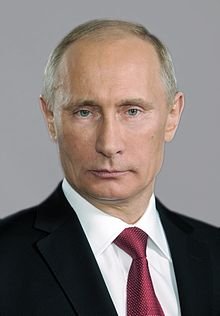Russia's targeting of black voters is a very American thing to do
CNN/Stylemagazine.com Newswire | 12/21/2018, 2:27 p.m.
By David A. Love
(CNN) -- When Vladimir Putin focused on black voter depression and sowing racial divisions in the 2016 election to help propel Donald Trump into the White House, he engaged in what is, unfortunately, a longstanding and time-tested American practice.
Two reports commissioned by the Senate Intelligence Committee found that a Russian disinformation campaign interfered in the 2016 election to benefit Donald Trump by exploiting all major social media platforms and sowing racial and political divisions. Specifically, the Russian influence campaign on social media targeted African-American voters to depress Democratic turnout.
The first report, produced by Austin, Texas-based cybersecurity company New Knowledge, found that Russian interference in the 2016 election involved hacking attempts on online voting systems, a cyberattack on the Democratic National Committee, and a "sweeping and sustained social influence operation consisting of various coordinated disinformation tactics aimed directly at US citizens, designed to exert political influence and exacerbate social divisions in US culture." The disinformation operation was the work of the Russian state-supported Internet Research Agency (IRA), whose work included 10 million tweets, 116,000 Instagram posts, 61,000 Facebook posts and 1,000 videos.
According to New Knowledge, the IRA deployed voter depression techniques on Facebook and Instagram accounts targeting the black community in the days before the election, while fear-mongering on right-wing social media accounts about voter fraud, election stealing and -- in their top-performing post, put up a month before the election -- alluding to the possibility of "riots nationwide" if Hillary Clinton were to win.
The second report, prepared by the Computational Propaganda Research Project at the University of Oxford, noted that the IRA messaging steered black voters away from politics by capitalizing on anger over racial inequities related to poverty, police brutality and incarceration. It also urged African-Americans to follow incorrect voting procedures and boycott the election.
Through the use of campaigns such as Black Matters US and Blacktivist, Russia sought, in the words of the New Knowledge report, to create "an immersive influence ecosystem" and integrate into black community media by "developing Black audiences and recruiting Black Americans as assets." IRA operations, specifically Black Matters US, targeted me specifically. After initial contact and an interview, I started to notice red flags. While I didn't realize it was a bot campaign, something didn't feel right, and when I started to receive emails about flash mobs and rallies they said they were planning around criminal justice issues, I ignored them. Then the reports came out that this had been an elaborate Russian propaganda effort against African-American thinkers, journalists and activists.
The Russian operation also appealed to conservative voters through xenophobia, patriotism and Islamophobia, and to a lesser extent targeted liberal, LGBTQ, and Muslim voters, and Latino voters to sow distrust of American institutions.
Black voter turnout declined in the United States in 2016 for the first time in 20 years in a presidential election. While some decline in participation might have been expected in the first election after the first African-American president was on the ballot, after the election, as if to acknowledge the success of the Russian campaign, Trump thanked black voters who did not go out to the polls. "The African-American community was great to us. They came through, big league. Big league," Trump told a majority-white audience in Grand Rapids, Michigan, in December 2016. "And frankly if they had any doubt, they didn't vote, and that was almost as good, because a lot of people didn't show up, because they felt good about me," he continued.
The same month, at a rally in Hershey, Pennsylvania, he boasted that "they didn't come out to vote for Hillary. They didn't come out. So thank you to the African-American community."
Attempts to depress turnout and participation by voters of color is nothing new. That a foreign power was able to exploit racism in the United States and manipulate the vote to help elect Trump speaks to the unaddressed racial discrimination in America -- existing systems designed to disempower people of color in which no Russians were involved.
In the 100 years after the Civil War, Southern Democrats and the Ku Klux Klan intimidated, maimed and lynched black people who dared to exercise their right to vote. While 2,000 black Republican elected officials served during Reconstruction on the federal, state and local level, including senators, members of Congress and a governor, Jim Crow laws brought that to an end, prohibiting voting by African-Americans and restoring white supremacist rule to the South.
As Democrats became associated with civil rights and made inroads in black and Latino communities, Republicans employed a Southern Strategy to woo disaffected white Southerners. In the early 1960s, a conservative GOP political activist named William Rehnquist -- the future US Supreme Court chief justice -- was involved in Operation Eagle Eye, in which a group of lawyers challenged black and Hispanic voters at polling places in Phoenix, Arizona.
Today, with a conservative-dominated Supreme Court that has turned its back on voting rights and gutted the Voting Rights Act, voter suppression and extreme gerrymandering have become a Republican mainstay. After all, research has shown that going the route of apartheid South Africa or the Jim Crow neo-Confederate South is the only way for a nearly-exclusively older white party to maintain power, in a country where, already, black and brown babies represent the majority of births. Employing the trope of voter fraud, some Republican-controlled states enacted stringent voter ID laws designed to racially discriminate, and Trump formed his election integrity commission, which he later disbanded.
In the recent Georgia gubernatorial race, former secretary of state Brian Kemp helped to secure his own victory over Stacy Abrams by purging 1.5 million voters between 2012 and 2016, and another 665,000 last year, while holding up 53,000 registrations -- nearly 70% of which were for black voters.
Mississippi Senator-elect Cindy Hyde-Smith joked about public hangings and making it harder for "liberal folks in those other schools" to vote on the campaign trail. In Florida, Governor-elect Ron DeSantis -- who told Florida voters not to "monkey this up" and benefited from racist robocalls calling his opponent Andrew Gillum a "negro" and a "monkey" -- now wants to put the brakes on a successful ballot measure that will restore voting rights to 1.4 million ex-felons. And a North Carolina congressional race is unresolved amid allegations the Republican winner committed election fraud by hiring someone to tamper with absentee ballots.
Russia exploited racism in the United States and capitalized on American hypocrisy, seizing on the injustices of the Jim Crow South and attempting to woo black America by arguing the nation could not claim to lead the free world and oppose civil rights. It is no wonder Putin could capitalize on American racial strife to help install a President who enjoys the support of the Klan and neo-Nazis, imprisons 15,000 Latin American migrant children and calls white supremacist protesters "some very fine people."
This, in a country that has failed to come to terms with its original sin of racism, and prefers to breed inequality, injustice and misinformation rather than educate citizens who are committed to democracy, the rule of law, diversity and inclusion.
Similarly, it is no wonder Putin was able to infiltrate the NRA, the Republican Party and the conservative movement with Maria Butina, who pleaded guilty to acting "under the direction" of a Russian official.
When white supremacists gathered at the Robert E. Lee statue in Charlottesville, armed with their tiki torches and shouting "Russia is our friend," we should have believed them.










